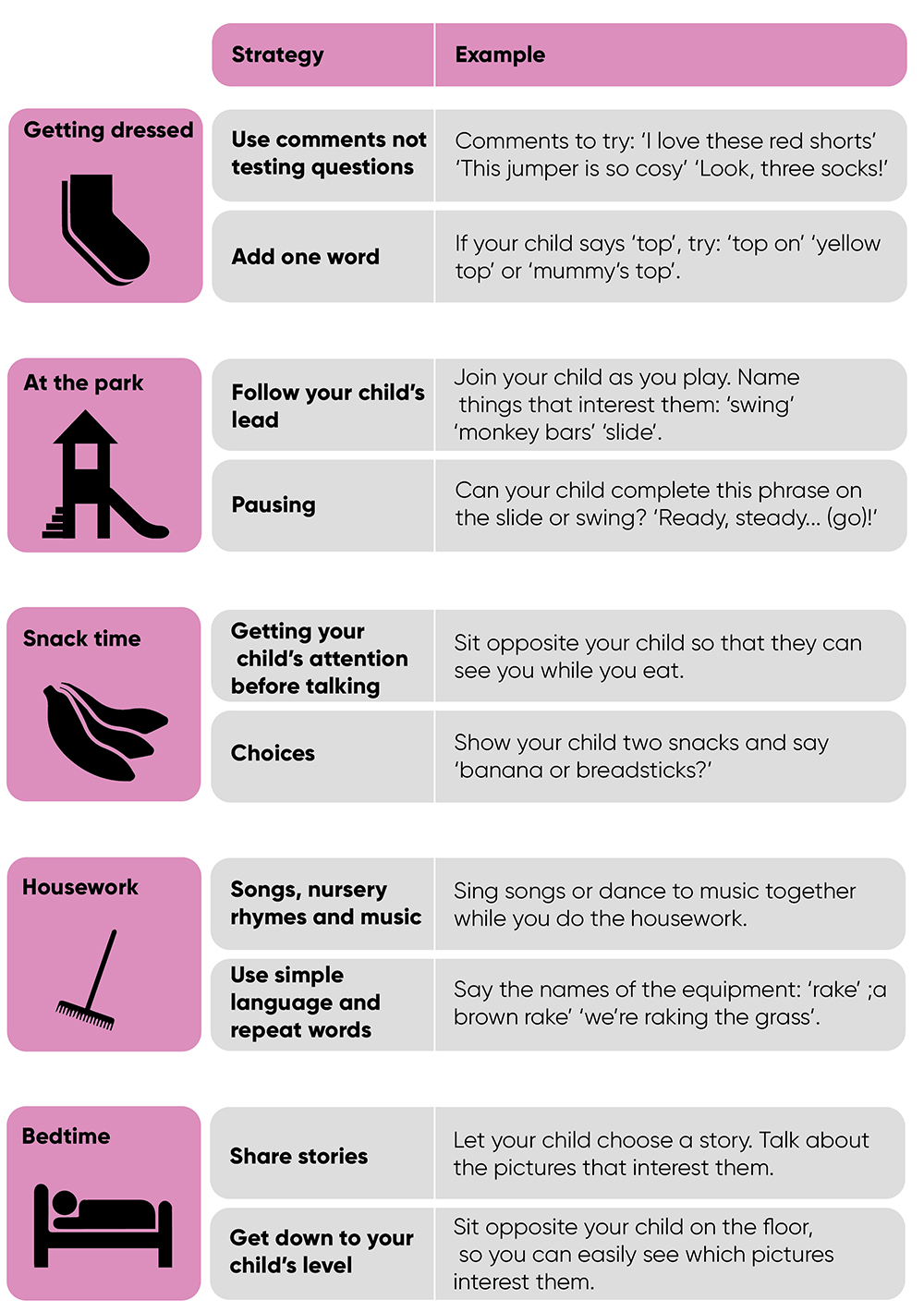Supporting children’s early communication skills
Tips for supporting communication skills in children aged 18 months to five years.
How can I help my child develop their communication skills?
In typical development, children learn to talk and understand words gradually. They learn best from listening and talking to other people. You – as the child’s family – play an important role in helping your child develop their early communication skills. The tips below can help develop your child’s skills.
Children learn a lot from looking at your face and body language when you talk. Make it easy for your child to see you by getting down to their level and talking and playing face to face.
It can be difficult for children to pay attention if there are a lot of distractions or background noise. Turn down music or the TV when talking or playing together. You can get your child’s attention by calling their name or gently touching their arm. Wait for your child to be ready before you begin talking.
Children need to hear words lots of times before they can understand the words or use them to talk. Keep your sentences short and say important words several times (e.g. ‘Spade. That’s a spade. A green spade. Spades are for digging’).
Help your child use longer sentences by adding one word to what they say. So if your child says ‘I got teddy’, you could say ‘Yes, you’ve got a fluffy teddy!’. You can find more ideas for learning words here.
Pausing gives your child extra time to think about what they want to say. If you ask your child a question, pause for at least ten seconds to let them answer- this can seem like a long time! Pausing can also allow your child to join in with a song, rhyme, or word without feeling under pressure. For example, ‘Jack and Jill went up the … (hill)’, ‘I’ve got one, two,… (three)’.
Testing questions are questions that we already know the answer to. For example, we might ask ‘What colour is that?’ or ‘What’s this called?’ even though we already know the answer. Testing questions can make children feel under pressure and they might respond with just one word, or no words at all. Comments put less pressure on your child because they can choose how they want to answer. For example, if we comment ‘Wow I love this purple car’ your child might tell you about their favourite colour, their car, or something else completely!
Choices are a great opportunity for your child to practice the words they are learning. Show your child two things to choose between- ‘shoes or wellies?’, or ‘milk or water?’. Your child can show you what they want by pointing or by trying to say the word.
Children learn words most easily when the words they hear match what they are paying attention to – so it is easier for them to learn the word ‘ball’ if they are playing with a ball. Join in with your child when they play. For example, if your child is driving cars around the walls – you could do the same with your cars. Following your child’s lead can help you notice when they are ready to hear a new word, and when they are busy playing and don’t want to be interrupted! If your child looks towards you, points, or shows you something- say the words you think they need. For example, if your child shows you their car going backwards, you can say ‘Reverse!’ ‘Our cars are reversing’.
Children can learn words and actions through songs and nursery rhymes. Listening or moving to music can also help get them ready to notice sounds which can be important for learning speech sounds. Share songs, nursery rhymes, and music with your child in any of the languages that you use at home.
Looking at books together is a great way to help your child learn new words. Start by simply talking about the pictures that your child seems interested in. See our information on book sharing.
When should I use these tips?
Your child is learning to communicate all the time. It is most helpful to use these tips to support them during your daily routines, rather than on a one-off occasion. For example:

You might also find it helpful to take a look at our top 10 toys here.
Useful websites

Helping your child learn to talk

Activities for 3-4 years
